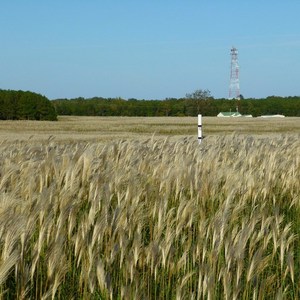Repreve Renewables adds genetic assets from Mendel

Repreve Renewables
May 15, 2014
BY Repreve Renewables
Repreve Renewables announced it has purchased certain genetic assets or germplasm for its giant miscanthus grass product development program from Mendel Biotechnology Inc., a privately held company in Hayward, Calif.
The purchase adds Mendel’s diverse miscanthus germplasm pool to Repreve Renewables’ proprietary biomass crop establishment technologies, its current product development program including the exclusive license of Freedom Giant Miscanthus and its novel business model. The purchased germplasm provides an opportunity to accelerate the development of non-invasive varieties of miscanthus.
These new varieties will be developed to have increased yield potential when planted in
different geographic areas, in varied soil types and under a range of agronomic conditions.
Advertisement
The company is investing in research to develop high-yielding feedstocks to meet the growing demand from biomass market customers, such as those that develop advanced biofuels, chemical intermediates, solid fuels, animal bedding and pulp and paper.
“The purchase of these miscanthus genetic assets is a natural progression of Repreve Renewables efforts to expand biomass production. We target production on underutilized or marginal land not suited for food and fiber crops. To ensure a consistent, viable source of feedstocks, we will develop additional varieties that grow well in these fields across the country,” said Jeff Wheeler, CEO.
“Our ultimate purpose is to provide reliable, cost-effective sources of feedstocks on a
commercial scale, allowing companies to develop and commercialize their own bio-based
products. Developing the right varieties to plant near customer locations where the feedstock is needed is a key component of our system.
Advertisement
“We view this purchase as an important strategic investment that expands the
company’s growth potential by anticipating and meeting our customers’ needs,” Wheeler said.
Related Stories
The USDA significantly increased its estimate for 2025-’26 soybean oil use in biofuel production in its latest World Agricultural Supply and Demand Estimates report, released July 11. The outlook for soybean production was revised down.
U.S. fuel ethanol capacity fell slightly in April, while biodiesel and renewable diesel capacity held steady, according to data released by the U.S. EIA on June 30. Feedstock consumption was down when compared to the previous month.
The U.S. EPA on July 8 hosted virtual public hearing to gather input on the agency’s recently released proposed rule to set 2026 and 2027 RFS RVOs. Members of the biofuel industry were among those to offer testimony during the event.
The USDA’s Risk Management Agency is implementing multiple changes to the Camelina pilot insurance program for the 2026 and succeeding crop years. The changes will expand coverage options and provide greater flexibility for producers.
The USDA’s National Agricultural Statistics Service on June 30 released its annual Acreage report, estimating that 83.4 million acres of soybeans have been planted in the U.S. this year, down 4% when compared to 2024.
Upcoming Events










